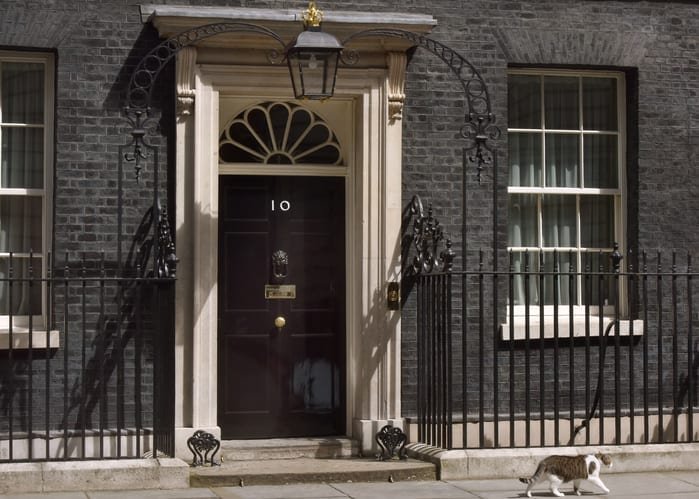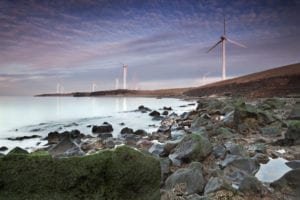The Prime Minister has today (18 Nov) set out his 10-point plan for a ‘green industrial revolution’ that will create and support up to 250,000 British jobs.
The plan, which covers clean energy, transport, nature and innovative technologies, has been created to ‘allow the UK to forge ahead with eradicating its contribution to climate change by 2050’, a goal the government sees as ‘crucial’ in the run-up to the COP26 climate summit in Glasgow next year.
Electric vehicles
The Prime Minister has confirmed that the UK will end the sale of new petrol and diesel cars and vans by 2030, 10 years earlier than planned.
The sale of hybrid cars and vans that can drive a significant distance with no carbon coming out of the tailpipe will be allowed until 2035.
The UK car industry already manufactures a significant proportion of electric vehicles in Europe, including one of the most popular models in the world.
To support this acceleration, the Prime Minister has announced £1.3 billion to accelerate the rollout of chargepoints for electric vehicles in homes, streets and on motorways across England, so people can more easily and conveniently charge their cars.
£582 million will be available in grants for those buying zero or ultra-low emission vehicles to incentivise more people to make the transition.
Nearly £500 million will be spent in the next four years for the development and mass-scale production of electric vehicle batteries, as part of a commitment to provide up to £1 billion, boosting international investment into our strong manufacturing bases including in the Midlands and North East.
This will help protect and create thousands of new jobs, particularly in the Midlands, North East, and North Wales.
A consultation will be launched on the phase out of new diesel HGVs to put the UK in the vanguard of zero emission freight. No date has been set yet.
‘Although this year has taken a very different path to the one we expected, I haven’t lost sight of our ambitious plans to level up across the country. My Ten Point Plan will create, support and protect hundreds of thousands of green jobs, whilst making strides towards net zero by 2050.
‘Our green industrial revolution will be powered by the wind turbines of Scotland and the North East, propelled by the electric vehicles made in the Midlands and advanced by the latest technologies developed in Wales, so we can look ahead to a more prosperous, greener future.’
BORIS JOHNSON
Prime Minister
The 10 points
The Prime Minister’s ten points, which are built around the UK’s strengths, are:
1. Offshore wind: Producing enough offshore wind to power every home, quadrupling how much we produce to 40GW by 2030, supporting up to 60,000 jobs.
2. Hydrogen: Working with industry aiming to generate 5GW of low carbon hydrogen production capacity by 2030 for industry, transport, power and homes, and aiming to develop the first town heated entirely by hydrogen by the end of the decade.
3. Nuclear: Advancing nuclear as a clean energy source, across large scale nuclear and developing the next generation of small and advanced reactors, which could support 10,000 jobs.
4. Electric vehicles: Backing our world-leading car manufacturing bases including in the West Midlands, North East and North Wales to accelerate the transition to electric vehicles, and transforming our national infrastructure to better support electric vehicles.
5. Public transport, cycling and walking: Making cycling and walking more attractive ways to travel and investing in zero-emission public transport of the future.
6. Jet Zero and greener maritime: Supporting difficult-to-decarbonise industries to become greener through research projects for zero-emission planes and ships.
7. Homes and public buildings: Making our homes, schools and hospitals greener, warmer and more energy efficient, whilst creating 50,000 jobs by 2030, and a target to install 600,000 heat pumps every year by 2028.
8. Carbon capture: Becoming a world-leader in technology to capture and store harmful emissions away from the atmosphere, with a target to remove 10MT of carbon dioxide by 2030, equivalent to all emissions of the industrial Humber today.
9. Nature: Protecting and restoring our natural environment, planting 30,000 hectares of trees every year, whilst creating and retaining thousands of jobs.
10. Innovation and finance: Developing the cutting-edge technologies needed to reach these new energy ambitions and make the City of London the global centre of green finance.
 Play Video about This Rock Might Just Save The World
Play Video about This Rock Might Just Save The World Play Video about Play 2 hours of rock
Play Video about Play 2 hours of rock Play Video about Play 2 hours of brook
Play Video about Play 2 hours of brook Play Video about Play 2 hours of sheep
Play Video about Play 2 hours of sheep















































